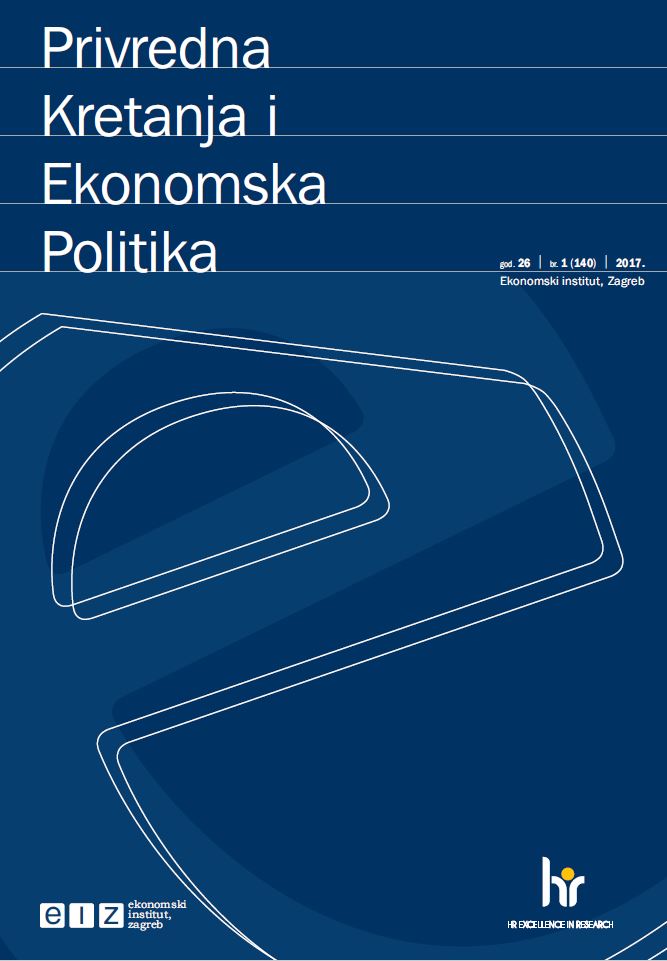New edition of Economic Trends and Economic Policy

The latest issue of Economic Trends and Economic Policy brings research articles: “Facilitating Effective Science-Industry Collaborative Research: A Literature Review”, “Applying the Concept of Flexicurity in the Republic of Croatia” and “Analysis of Competitiveness of the Republic of Croatia in the European and Global Logistics Space”. It also brings a review of Richard Baldwin's book The Great Convergence: Information Technology and the New Globalization.
Ivan-Damir Anić brings the article “Facilitating Effective Science-Industry Collaborative Research: A Literature Review”. Existing research indicates that science-industry collaborative research might be a powerful source of innovation and an important factor of high innovation performance and economic growth. Although a number of public policy initiatives promote collaborative research, its potential is still not being adequately reached. This paper presents a review of existing literature on science-industry collaborative research. It elaborates and discusses motives and determinants of collaborative research, and identifies obstacles to joint science-industry research, from both the companies’ and public research organizations’ perspective. Based on the literature review, the paper provides recommendations for innovation policies.
In the paper “Applying the Concept of Flexicurity in the Republic of Croatia”, Ana Ostrovidov Jakšić analyzes the possibilities of applying the concept of flexicurity in the Republic of Croatia. Flexicurity is a model of coordinated labor and social policies that advocate easier employment and dismissal. This way of modernizing the European social model has been the flagship initiative of economic and social policy reforms in the European Union during the past decade and these principles still apply. The paper presents the main features of flexibility and flexicurity, the components of flexicurity, intervention logic, implementation principles and impact assessment options by identifying the most relevant indicators. Additionally, it analyzes the progress of the current policies and efforts in the Republic of Croatia with regard to the individual components of flexicurity in comparison to other countries that are in different stages and have different objectives of labor market development.
Zdravko Zekić, Luka Samaržija and Justin Pupavac bring the paper “Analysis of Competitiveness of the Republic of Croatia in the European and Global Logistics Space”. The logistics of space-time transformations of goods, energy, information and knowledge through adequate value-added transformation (production) processes is emerging as a key component of competitive success in modern economies. The management of logistics activities concerned with the coordination of information, material and financial flows is recognized as a main determinant of the competitive ability of an enterprise or business system in today’s networked global economy. The paper analyzes the competitiveness of the Republic of Croatia within the European and global logistics space. The analysis is based on the 2016 World Bank report “Trade Logistics in the Global Economy: The Logistics Performance Index and Its Indicators”. The findings clearly point to the logistics inefficiency and non-competitiveness of Croatia, resulting from insufficient knowledge of the contemporary logistics concept of business management in integration processes. The results also point to the necessity of improving the logistics performance of the Republic of Croatia as a condition to increase its competitiveness within the European and global logistics space and as such are intended for logistics and overall economic development decision makers, as well as for logistics experts at the micro- and macro-level of logistics management.
In addition, Ivo Bićanić brings a book review of The Great Convergence: Information Technology and the New Globalization by Richard Baldwin.


